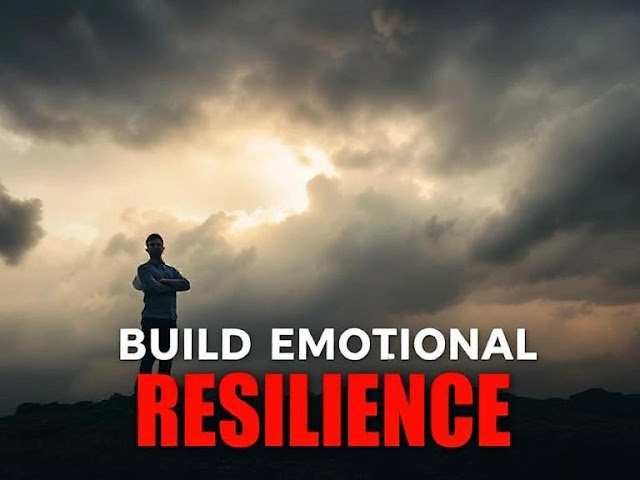Emotional resilience is the ability to adapt to stress, adversity, and life’s challenges while maintaining mental and emotional well-being. It’s not about avoiding difficulties but rather about navigating them with strength and grace. In today’s fast-paced and often unpredictable world, building emotional resilience is more important than ever. This comprehensive guide will explore actionable strategies to help you develop emotional resilience, manage stress, and thrive even in the face of adversity.
1. Understand the Foundations of Emotional Resilience
Emotional resilience is built on several key pillars:
- Self-Awareness: Understanding your emotions, triggers, and responses.
- Self-Regulation: Managing your emotions and reactions in healthy ways.
- Optimism: Maintaining a positive outlook, even in difficult situations.
- Support Systems: Relying on relationships and communities for encouragement and assistance.
- Problem-Solving Skills: Finding effective solutions to challenges.
By strengthening these foundations, you can build a solid base for emotional resilience.
2. Develop Self-Awareness
Self-awareness is the cornerstone of emotional resilience. Here’s how to cultivate it:
- Practice Mindfulness: Pay attention to your thoughts, feelings, and bodily sensations without judgment.
- Journal Regularly: Write about your experiences, emotions, and reactions to gain insight into patterns.
- Seek Feedback: Ask trusted friends, family, or colleagues for their perspectives on how you handle stress and challenges.
Self-awareness helps you recognize your emotional triggers and respond more effectively.
3. Build Healthy Coping Mechanisms
How you cope with stress and adversity plays a significant role in emotional resilience. Here are some healthy coping strategies:
- Physical Activity: Exercise releases endorphins, which improve mood and reduce stress.
- Creative Outlets: Engage in activities like painting, writing, or playing music to express emotions.
- Relaxation Techniques: Practice deep breathing, progressive muscle relaxation, or meditation to calm your mind.
- Hobbies and Interests: Dedicate time to activities that bring you joy and a sense of accomplishment.
Healthy coping mechanisms help you manage stress without resorting to harmful behaviors.
4. Cultivate a Positive Mindset
A positive mindset doesn’t mean ignoring challenges; it means approaching them with hope and confidence. Here’s how to foster positivity:
- Reframe Negative Thoughts: Replace self-defeating thoughts with empowering ones. For example, instead of “I can’t do this,” say, “I’ll give it my best shot.”
- Practice Gratitude: Regularly reflect on the things you’re thankful for, no matter how small.
- Visualize Success: Imagine yourself overcoming challenges and achieving your goals.
A positive mindset helps you stay motivated and focused during tough times.
5. Strengthen Your Support Network
Strong relationships are a vital component of emotional resilience. Here’s how to build and maintain a supportive network:
- Nurture Relationships: Spend quality time with family and friends, and show appreciation for their support.
- Join Communities: Participate in groups or organizations that align with your interests and values.
- Seek Professional Help: Therapists, counselors, or coaches can provide guidance and support during challenging times.
A strong support network provides encouragement, perspective, and practical assistance.
6. Develop Problem-Solving Skills
Effective problem-solving helps you navigate challenges with confidence. Here’s how to enhance your skills:
- Identify the Problem: Clearly define the issue you’re facing.
- Brainstorm Solutions: Generate multiple potential solutions without judging them.
- Evaluate Options: Consider the pros and cons of each solution.
- Take Action: Choose the best option and implement it.
- Reflect and Adjust: Assess the outcome and make adjustments as needed.
Problem-solving skills empower you to take control of difficult situations.
7. Practice Self-Compassion
Self-compassion involves treating yourself with kindness and understanding, especially during tough times. Here’s how to practice it:
- Acknowledge Your Feelings: Allow yourself to experience emotions without judgment.
- Speak Kindly to Yourself: Replace self-criticism with supportive and encouraging self-talk.
- Recognize Common Humanity: Remember that everyone faces challenges and makes mistakes.
8. Set Realistic Goals and Take Small Steps
Setting and achieving goals can boost your confidence and resilience. Here’s how to do it effectively:
- Break Down Big Goals: Divide large goals into smaller, manageable steps.
- Celebrate Progress: Acknowledge and celebrate each milestone, no matter how small.
- Adjust as Needed: Be flexible and willing to revise your goals based on changing circumstances.
Achieving small goals builds momentum and reinforces your ability to overcome challenges.
9. Embrace Change and Uncertainty
Change is a constant in life, and learning to adapt is crucial for emotional resilience. Here’s how to embrace change:
- Focus on What You Can Control: Accept that some things are beyond your control and focus on your response.
- Stay Open-Minded: Approach new situations with curiosity and a willingness to learn.
- Develop Flexibility: Be willing to adjust your plans and expectations as needed.
Embracing change helps you navigate uncertainty with confidence and adaptability.
10. Prioritize Self-Care
Self-care is essential for maintaining emotional resilience. Here’s how to prioritize it:
- Physical Self-Care: Eat nutritious meals, exercise regularly, and get enough sleep.
- Emotional Self-Care: Engage in activities that bring you joy and relaxation.
- Mental Self-Care: Challenge your mind with puzzles, reading, or learning new skills.
- Social Self-Care: Spend time with loved ones and nurture meaningful relationships.
Self-care ensures you have the energy and emotional resources to handle challenges.
In conclusion, building emotional resilience is a lifelong journey that requires intentional effort and self-awareness. By developing self-awareness, building healthy coping mechanisms, cultivating a positive mindset, strengthening your support network, enhancing problem-solving skills, practicing self-compassion, setting realistic goals, embracing change, and prioritizing self-care, you can thrive even in challenging times. Remember, resilience is not about avoiding difficulties but about facing them with strength and grace. Start today and take the first step toward building emotional resilience.

